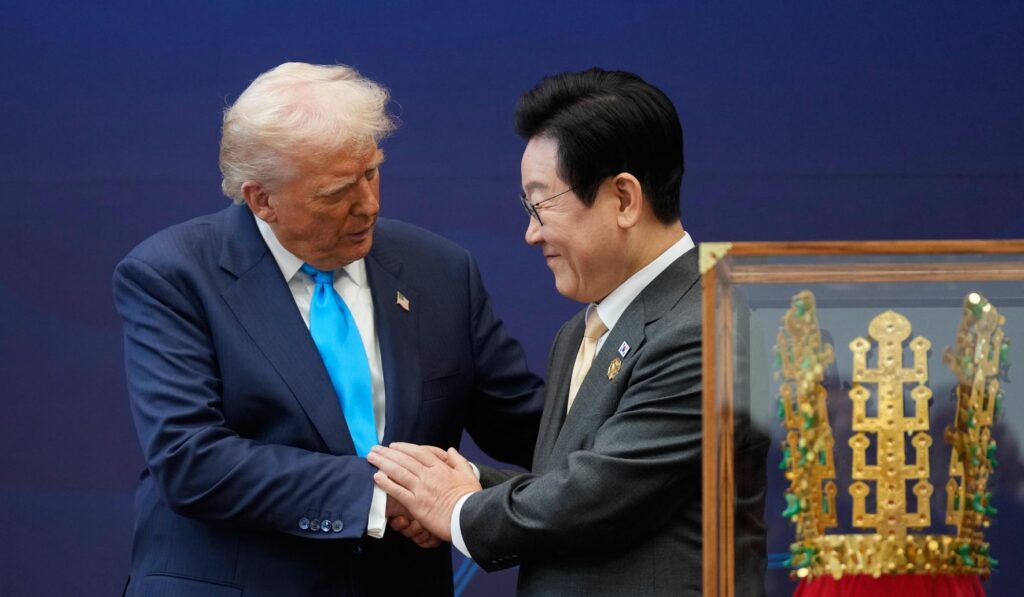President Trump aimed to turn a diplomatic trip into a big economic win by asking South Korea for massive investment in the United States, but what he received publicly was largely ceremonial. This piece looks at that contrast, explores the strategic and economic priorities at stake, and lays out why tough bargaining and clear goals matter for American prosperity and security.
“President Trump wanted South Korea to invest $350 billion in the American economy. So far, he’s settling for a gold medal and a crown.” That line captures the political theater: bold economic asks paired with symbolic diplomatic flourishes. The optics are important, but the substance of a visit is measured by deals made and commitments delivered. Republicans argue that diplomacy should produce measurable returns for American workers and taxpayers.
At the heart of this story is a simple principle: allies should be partners, not charity cases. Pushing for investment—especially in manufacturing, semiconductors, and critical supply chains—protects national security and rebuilds U.S. industry. When leaders press allies to put real capital into American projects, that is not punitive, it’s pragmatic. It ensures the United States remains competitive with China and other strategic rivals.
Economic leverage in diplomacy is not new, but the approach matters. Republicans favor clear asks and follow-through rather than empty praise and photo ops. A president setting a $350 billion target signals seriousness, but success requires concrete agreements with timelines and accountability. Without those, meetings become memorable headlines instead of jobs and factories.
Defense and trade are intertwined here. U.S. troops in South Korea defend both nations’ interests, and reasonable burden-sharing should reflect that reality. Encouraging allies to invest in American infrastructure, technology, and production lines offsets long-term costs and strengthens the U.S. industrial base. Investment commitments can be structured to prioritize domestic job growth and secure supply chains for industries essential to national defense.
There will always be ceremonial moments in diplomacy; medals and honors matter for relationships. But they should supplement, not replace, substantive economic outcomes. The Republican view prefers a strategy that blends respect for allies with a results-oriented agenda. That means negotiating hard on investment pledges and following up with enforcement measures that ensure commitments translate into action.
Private companies and governments both have roles to play. South Korean firms have global reach and technological strengths that can bolster American competitiveness when paired with clear incentives. The U.S. can make itself a more attractive partner through predictable policy, streamlined permitting, and targeted tax incentives that reward investment in underserved regions. Those policies, combined with firm negotiations, turn diplomatic goodwill into durable economic gains.
Ultimately, a visit that produces a parade of gestures but few binding commitments is a missed opportunity for working Americans. Republican policy emphasizes leverage, accountability, and tangible outcomes over empty symbolism. If the administration keeps pushing, follows up, and insists on measurable investments rather than just ceremonial honors, that $350 billion ask has a shot at becoming more than a talking point.



